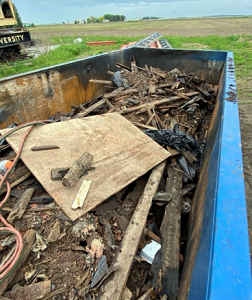
There it was, early last month I received a phone call from the daughter of a client of mine, he had passed away. What his daughter and her family discovered was a locked room where my client had kept his hobby. His daughter found my number in the contact list in his mobile phone and hoped that I could shed some light on what was in the room, what it was worth – if anything – and what to do next.
This was not the first time that I had received a call like this, but every time I get one, I hope that it is the last. To those of you reading this on my railroad history website, you know the story. You have heard it a hundred times. For those of you reading this on my law practice website, you may not have heard this until now.
A little background on me: I am a member of the Organization of American Historians (OAH). My interest in history is centered on electric railroads, particularly those urban to rural lines referred to as interurbans. But my research and writing has carried me through many aspects of railroad history including cultural, labor, and legal issues such as Jim Crow laws and social norms as they played out both in the South and the North.
As a lawyer working in the area of trusts and estates, I have seen spouses react in predictable ways to the hobbies and collections left after their life partner is gone. About a third of the folks figure out what their spouse’s passion means to those of us still here and find good homes for historical material that has some future value. They do so with some diligence despite a lack of direction from their dearly departed. Another third will hastily look through a directory of nonprofit organizations that superficially seem to be a good fit for the collection, stipulating that everything must go, and go quickly it must. The last third call for dumpster.
I have seen and heard about way too many collections of American transportation and other history – photographs, ephemera, hardware, and other valuable antiques – disappearing before a memorial service can be held. This seems impossible in the age of eBay, but it is still happening. Sometimes, the surviving spouse passionately hated their loved one’s hobby and wanted the evidence of it treated with contempt.
If you are struggling with what to do with collections that you prized so highly in life, first, make a plan for disposition at your passing. Put that plan in the form of a memorandum to your will, or describe the collection in a trust document with instructions as to how it is to be treated when you are no longer here. If you want it to be treated by your personal representative and family as well as you are treating it now, have folks in mind who are expert at disposing of or expert at maintaining collections. Alternatively, you can gift your collected history to a qualified nonprofit inter vivos (that is, during your life), allowing you to see how your legacy will be cherished by others. An inter vivos gift will benefit your spouse and family as well; they will be spared the headache and heartache of trying to meet your objectives and wondering if they did right by your wishes.
Lastly, under the Uniform Trust Code (UTC) § 813, trustees have a duty to report and to keep qualified beneficiaries informed. No one likes a guessing game about the important things in life, and courts were not fond of the secrecy that trustees were allowed under the old statutes. Secrecy meant that beneficiaries were often troubled about their standing in the wills or trusts after the death of the testator or settlor resulting in judicial inefficiency from suits over issues such as perceived undue influence on the part of others. Let your beneficiaries know at least a reasonable amount of information so that they can reasonably plan for the future including the disposition of your prized and valuable collections.
Troubled by the effort to sort through the issues of trusts, wills, and gifting? Give Bob Harris a call at 970-822-3250 or email him at bob@canyonswestlegal.law and we can help you make sense of what can be a challenging question at any point in life: What is the best that I can do to be certain that my legacy will be appreciated and live on.

Don’t let your legacy wind up in a dumpster headed to the local landfill – plan now to see to it that your legacy is destined for a proper institution or is a benefit to your family.
